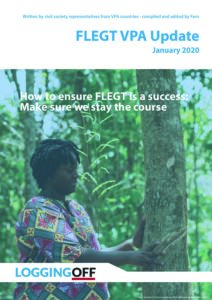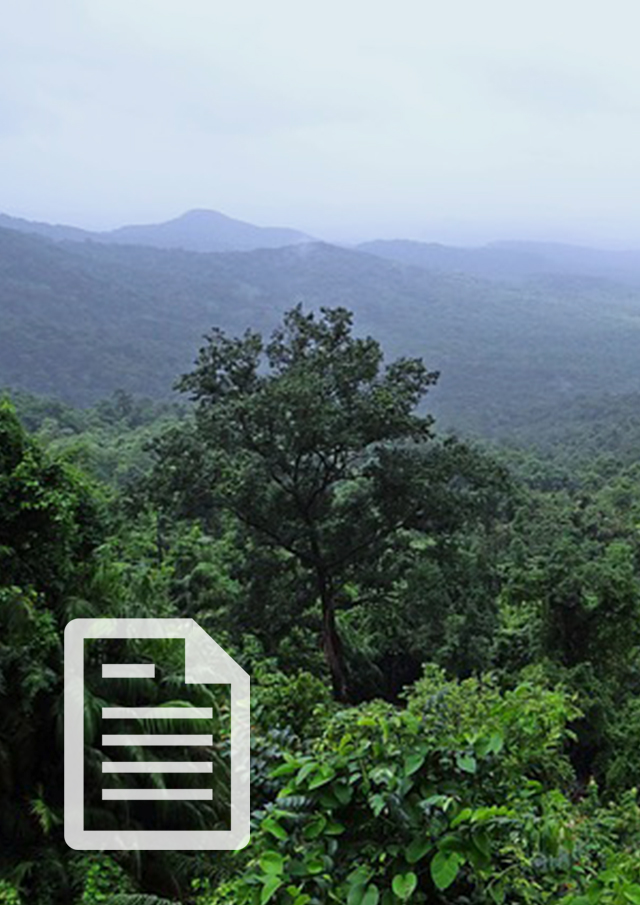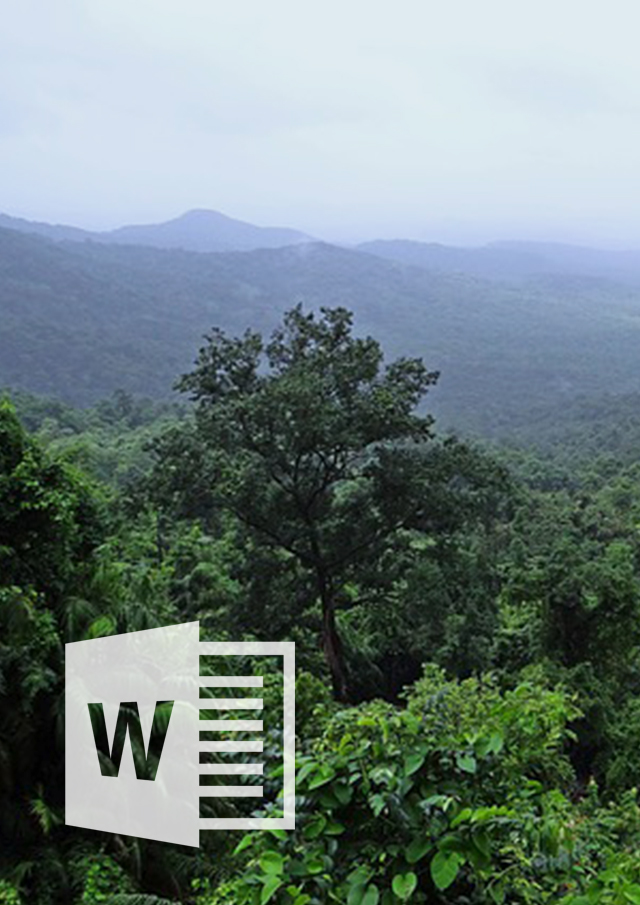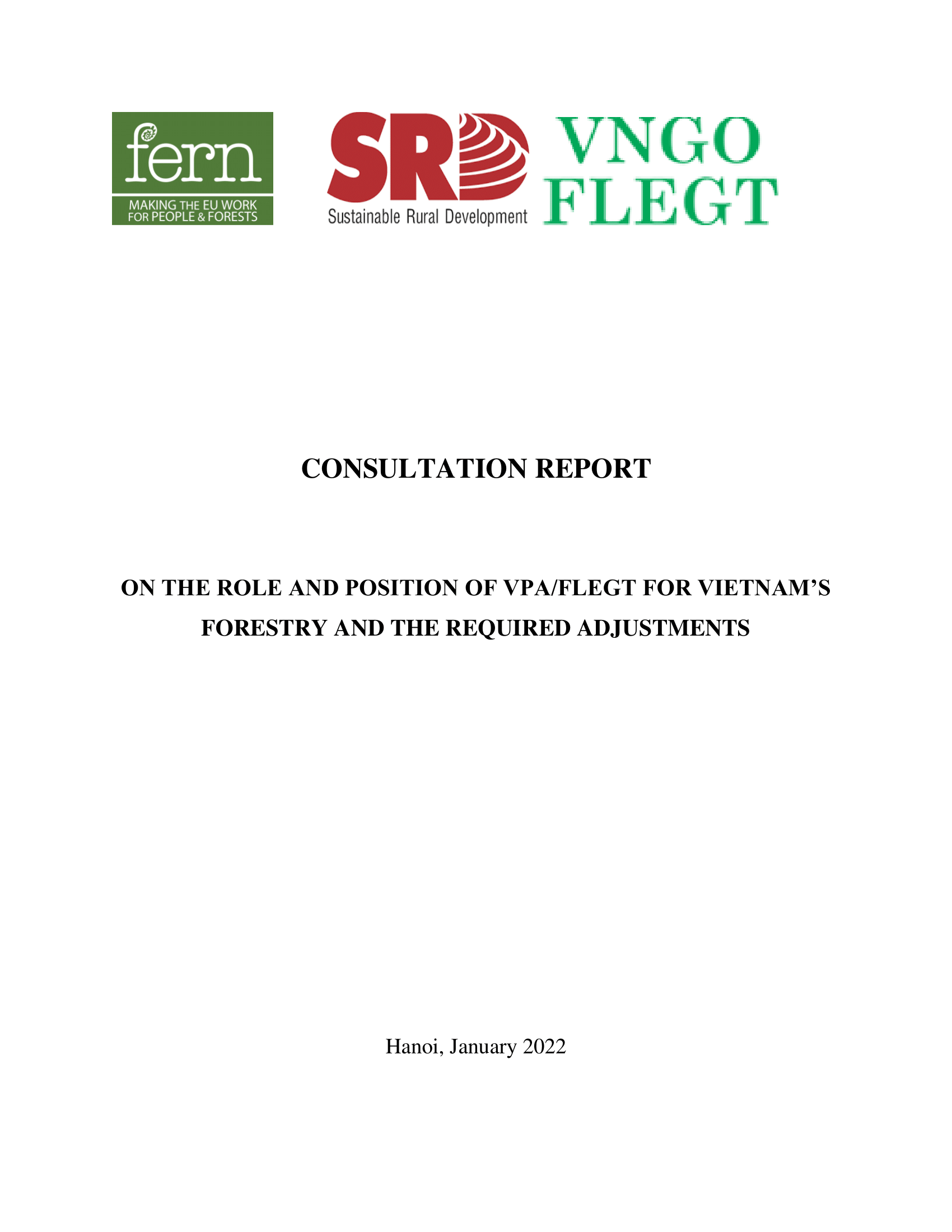Vietnam
After eight years of negotiations, the VPA between Vietnam and the EU was signed on 19 October 2018 in Brussels. But civil society has been rightly concerned about such a deal being signed whilst Vietnam remains a regional hub for illegal timber.
Vietnam is the world’s fourth-largest exporter of wood products. Forests cover about 45 percent of Vietnam’s land area.
There is a long tradition of small-scale timber processing operations in Vietnam, which is currently the largest timber processing hub in South East Asia. Tens of thousands of small household producers make a living turning wood from natural forests into household items, construction timber and other products for both domestic and international use. A majority of these producers only sell their products domestically. Mostly, the industry continues to rely on imports for about 80 percent of its timber, including from Cambodia, China, Laos, Malaysia and Thailand.
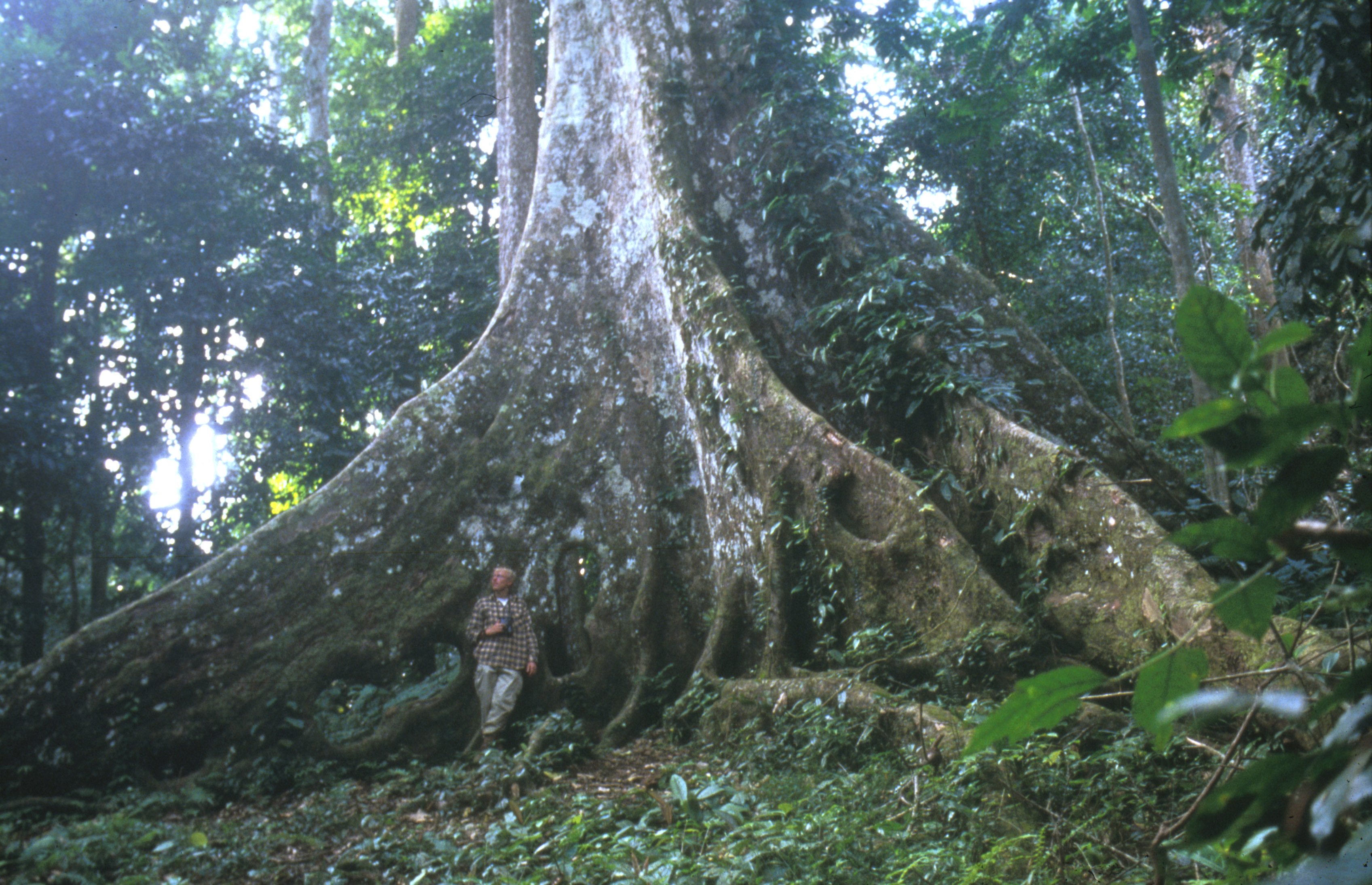
Latest VPA update:
Preparations for implementing the key provisions of the EU-Vietnam FLEGT VPA have been underway since its signature in 2018. Significant stumbling blocks remain to effective implementation and to achieving the spirit of the VPA agreement, however.
Regarding the involvement of NGOs in implementing and monitoring the VPA, Article 15 of the Agreement stipulates, “Viet Nam guarantees that the implementation and monitoring of this Agreement will be undertaken transparently with the participation of multi-stakeholders, including NGOs, forestry associations, enterprises, trade organizations, communities and forest-dependent people.” At the recent Mekong River Land Governance’s Workshop to launch the book, “State of the Land in the Mekong”, however, the former Vice Minister of the Ministry of Natural Resources and Environment (MoNRE) said, “Vietnam is among the top countries to adopt comprehensive legislative documents, but is among the bottom country to implement them.”
With regards to VPA FLEGT, the multi-stakeholder Core Group (CG) established in 2017 “serves as a focal point to coordinate and promote the participation of multi-stakeholders in the implementation of the VPA/FLEGT in Vietnam and to support the Joint Implementation Committee in monitoring and evaluating the implementation of the Agreement”.
The CG currently has 38 participating organisations including: state management agencies, trade associations, social organisations, NGOs (eight International NGOs and 10 Vietnamese NGOs), and research institutions. The Environmental Investigation Agency (EIA) is a member but was not invited to the 7th CG meeting, for unknown reasons. Most participants are I/NGOs that express interest in the role of CSOs in monitoring VPA implementation. They also continue to criticise the poorly drafted TLAS, which was focused only on timber import and export.
CG meetings enjoy a kind of “collective ownership”: all participants can join in the discussion. In the end, however, decisions are made by the government. Stakeholders are not sure what the results of the meetings are, or what follow up will occur.
The effect of NGO participation in these meetings is therefore uncertain. Even the choice of who will represent VNGOs/CSOs is not controlled by them. Authorities have proposed alternatives to the representatives that VNGOs put forward. For example, at the 3rd CG meeting, VNFOREST proposed an organisation that had never worked with forest-dependent communities, Livelihoods Impact Assessment or VPA Impact Monitoring. At the 5th CGM, the CG representative proposed was the Vietnam Timber Association (VIFOREST).
Most recently, before the 7th CGM in November 2019, the VPA office suggested a CG representative from academia, from Hue University. The CV and nomination of the Centre for Rural Development (CRD)’s director was circulated at the meeting for comments and feedback. Luckily, CRD is a dual entity, both academic and NGO.
The cornerstone of the VPA’s legality assurance framework is to be a specific TLAS decree issued by the Prime Minister. The incorporation of VNGO comments on the TLAS decree is another example of the limited space for genuine participation accorded to civil society, however. At both the 6th and 7th CG Meetings, CSOs raised concerns, both by verbal submissions and written papers delivered before 31 August 2019. Neither answers nor feedback have been forthcoming – not even at the 7 November CG meeting. The final decree was to be submitted by December 2019, but no update about this decree has been given.
In effect, the decision-making process is unclear, the role of CSOs is undetermined, the complaint mechanism is undefined. These elements become most important concerning monitoring and evaluation of the VPA’s social, environmental and economic impacts, but the relevant M&E Chapter in the TLAS outlines them poorly, failing to specify the role of different stakeholders and CSOs.
It is therefore anticipated that it will prove very difficult for Vietnamese CSOs to engage. The same can be said for making use of the complaint mechanism; so far almost nothing to do with this framework has been defined. Given these broader circumstances, the issue of accountability is difficult to raise. If the complaint mechanism becomes operational at one point, it may help alert the authorities to specific problems, but accountability remains for the authorities to decide.
Despite the above challenges, CSOs are still trying to find ways to intervene. Over the last seven years, CSOs have been learning by doing, carrying out several action-oriented research projects, from very simple to comprehensive studies, in order to bring evidence-based advocacy messages and the voices of the most vulnerable groups into VPA processes.
As VPA preparation and implementation advances, the capacity of CSOs should be strengthened and updated to permit them to research and write policy briefs and reports about monitoring and the complaint mechanism. Additionally, NGOs need help mobilising financial resources from the private sector to enhance leverage and to conduct activities over the long term.
Last update on January 2020.
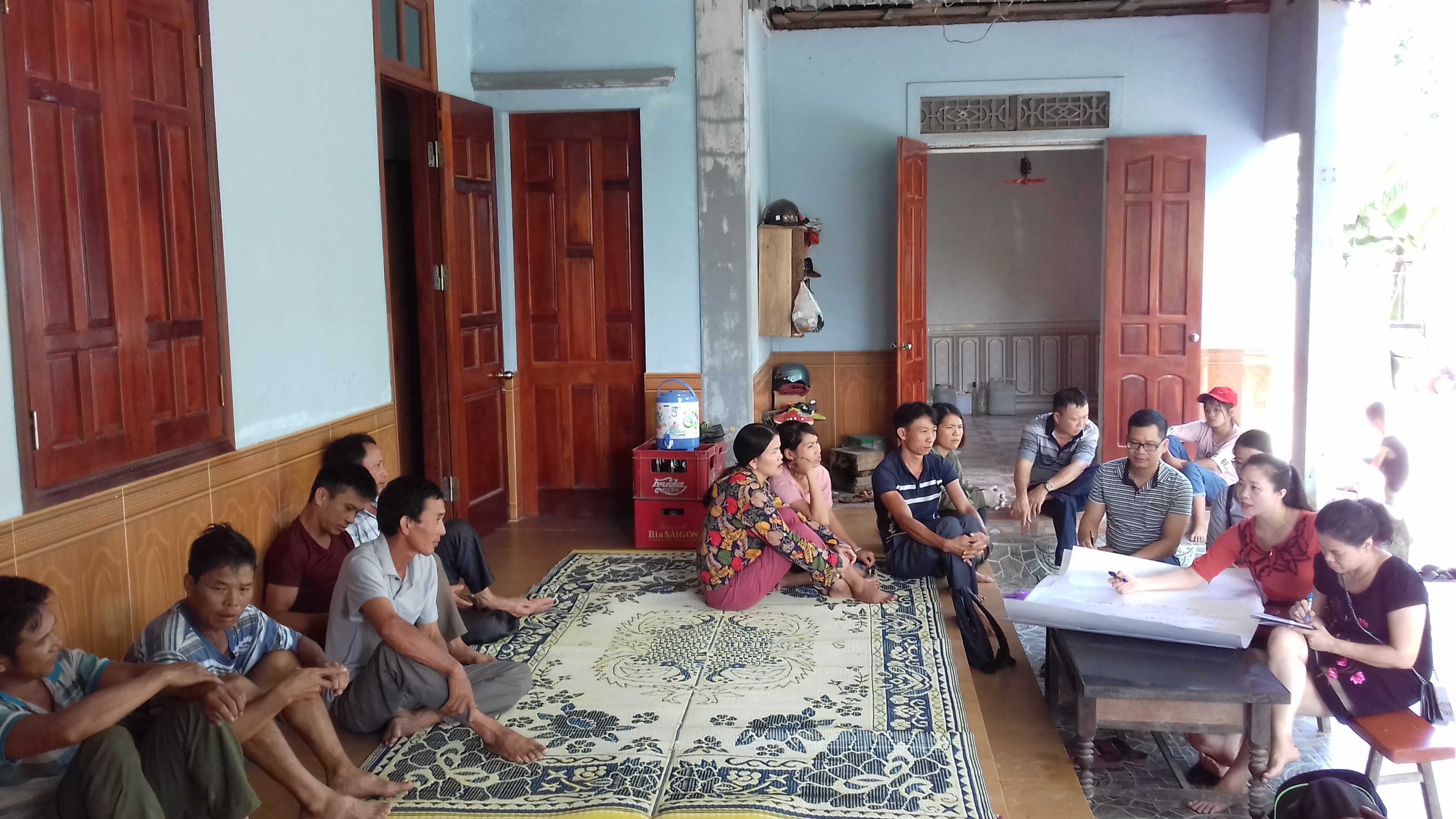
A brief history of VPA negotiation so far, from a civil society perspective.
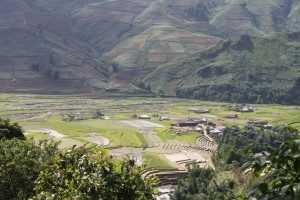 The Government of Vietnam and the EU announced the start of formal VPA negotiations in 2010. In 2011, the government launched independent studies on the timber legality definition framework, domestic and imported timber flows, and stakeholder engagement.
The Government of Vietnam and the EU announced the start of formal VPA negotiations in 2010. In 2011, the government launched independent studies on the timber legality definition framework, domestic and imported timber flows, and stakeholder engagement.
The issue of how Vietnam’s VPA will deal with timber imported from neighbouring countries, particularly Laos, has become increasingly prominent in the negotiations, and was the subject of much discussion during the third negotiating session in November 2012. Vietnam is not currently able to demonstrate the legality of all of its timber imports. The EU was adamant during these discussions that unless the issue of imports was resolved, there would not be a VPA. At the fourth negotiating session, in October 2014, the Vietnamese government tabled a proposal for dealing with legality questions around imported timber. The proposal has not yet been made public.
Contact point

For the latest information about Vietnam, contact SRD: http://srd.org.vn/
Share this page on social media:



